Changing the conversation for girls in Albania: from victim-blaming to self-confidence
Date: 12 December 2019
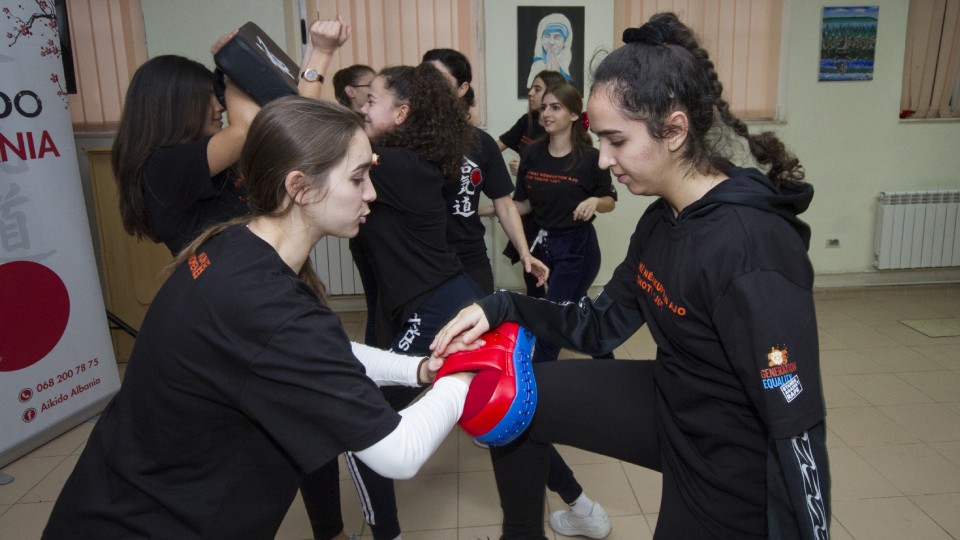
Around 120 girl students and women from different walks of life and survivors of domestic violence and trafficking received training on self-defense, personal safety, and how to interrupt and de-escalate violence in different forms. Empowerment Through Self Defense methodology (ESD), a set of tools to gain confidence and respond to situations that might be uncomfortable or violent, was combined with Aikido martial art. UN Women in Albania, in partnership with Aikido Albania, the Municipality of Tirana, the Ministry of Health and Social Protection and with the support of the Swedish Government organized five different training as part of the 16 Days of Activism.
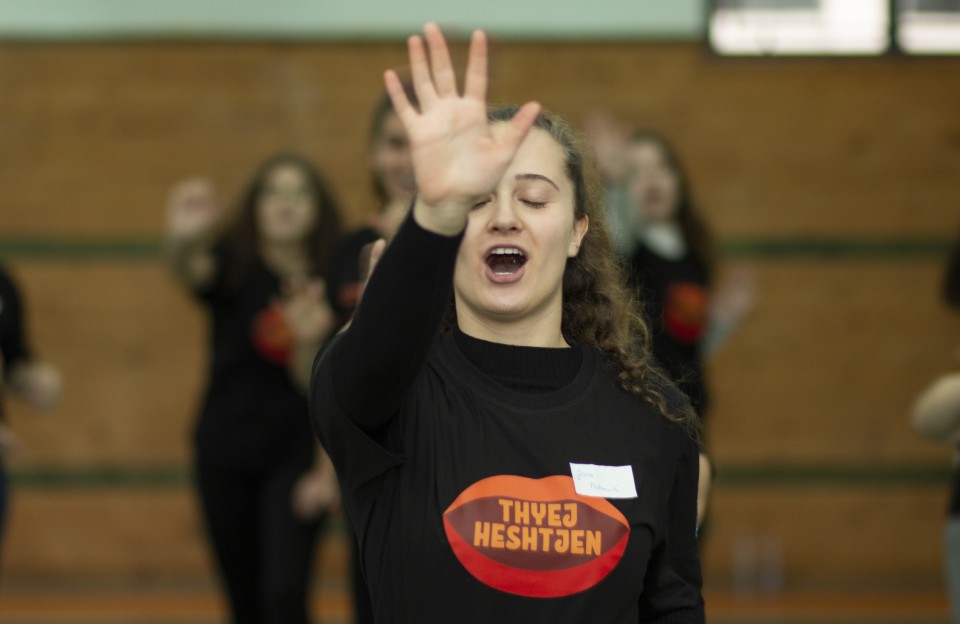
– Elona Grozdani, 32 years old, is the first of the girls who arrived at the Aikido Center in Tirana, Albania for the course on self-defense. She lives in Tirana where she found a job as a pharmacist after completing university. Born and raised in the small city of Pogradec, southeast of Albania, she had lived in dormitories, shared the space with peers or alone. “I am sorry to still hear in 2019 the advice given to girls in my city: do not stay late at night; always be accompanied by your father or brother; the only safe place seems to be home. It bothers me hearing this type of advice“, Elona says. However, she joined the course offered by the UN Women in the framework of the 16 days of activism campaign because of her interest to learn how to react when threatened by someone. “We are free persons; we want to live free, we can’t limit ourselves to certain timetables because this is not freedom. We have weddings, birthday parties, or occasions we want to attend so better to be prepared.”
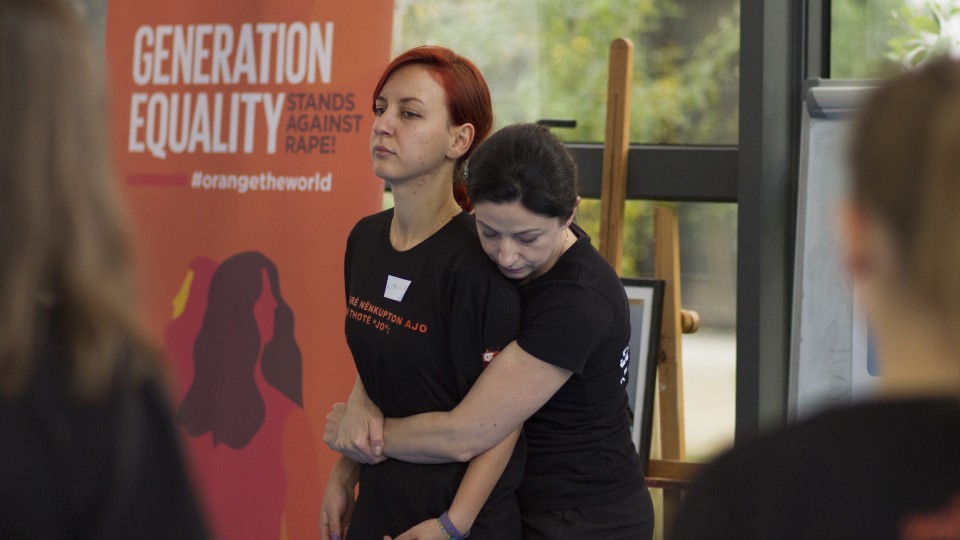
Lorela Moglica is further motivated because she plans a solo trip abroad soon; hence, she thought it wise to take some classes on self-defense. Lorela is from Elbasan, a 30-minute ride from Tirana where she now lives. “I feel safe in Tirana, mainly because I live in the center, where there are lights all the time and a lot of people around. However, safety for girls in other environments such as clubs or workplaces is not that high. So far, I have managed it by being verbally aggressive when I feel threatened or harassed. Since some men would not stop with words, I think having some physical skills would be good as well.”
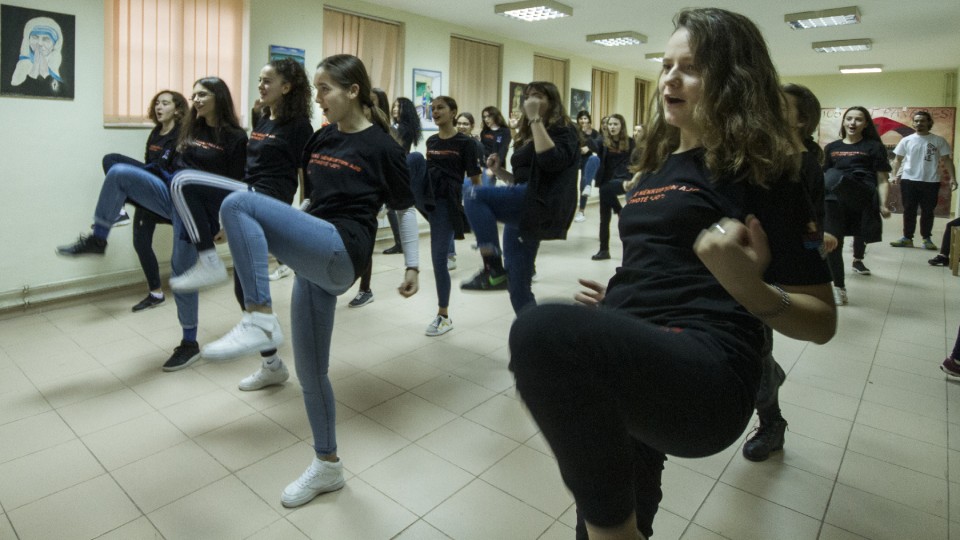
Five different training involving the participation of women and girls of diverse age groups and backgrounds were organized during the 16 Days of Activism. The three-hour basic training was designed to empower girls and women, and in turn, their families and communities, to prevent situations of abuse, violence, bullying, crime and victimization. Also, it aimed to break the myths surrounding violence against women, and to develop simple, easy-to-use self-defense techniques. Together with Aikido, a modern Japanese martial art, the training emphasized the most peaceful and efficient response to violence.
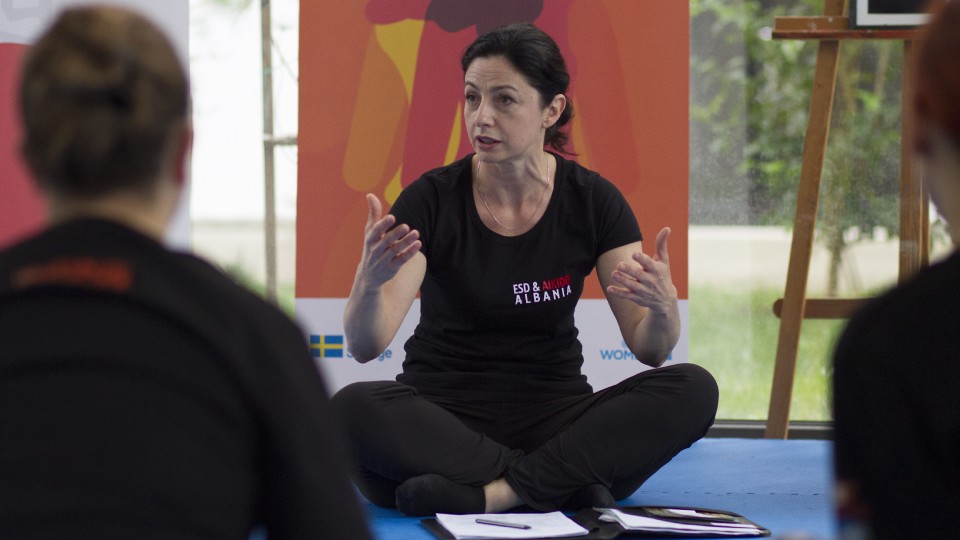
The certified trainer, Gentiana Susaj, the first Albanian woman with an Aikido black belt (Shodan), as well as a certified instructor by ESD Global for Empowerment through Self Defense, ran these unique courses. As a lawyer and international consultant on gender and human rights, notably anti-trafficking, Gentiana combines her profession and her passion for martial arts to combat gender-based violence, which affects one in two women in Albania. In her words;
![]() It is fulfilling to teach women that they are not inherently defenseless, but that have the right to set boundaries and know how to defend them when needed.”
It is fulfilling to teach women that they are not inherently defenseless, but that have the right to set boundaries and know how to defend them when needed.”
— Gentiana Susaj
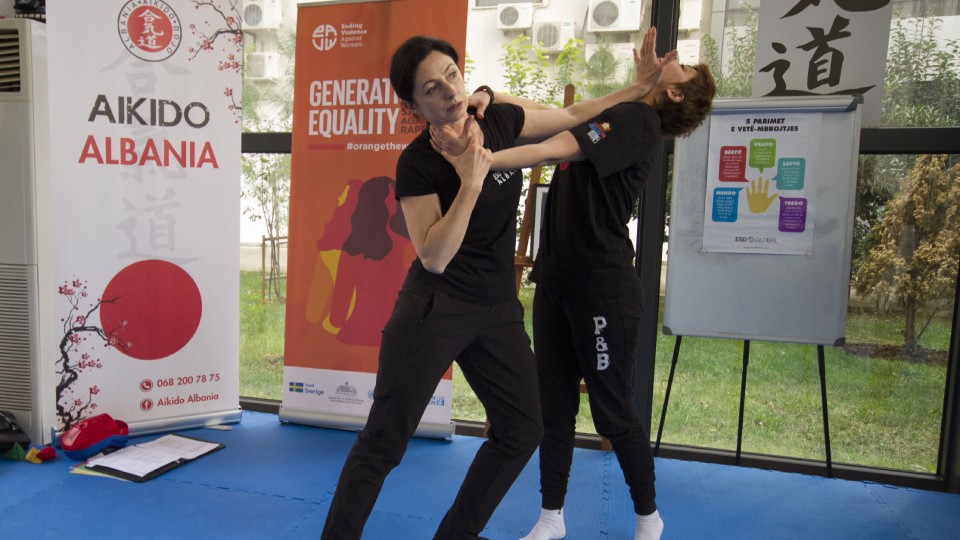
“From my vast experience in human rights, I see that raising awareness while empowering is one of the most effective and pragmatic ways of preventing and addressing violence. Through discussions and activities, using emotional, psychological and physical skills, we actively question what society has been forcing us to think of ourselves: victim-blame, shame and feelings of powerlessness. We seek to decrease levels of fear, increase knowledge on rights and social causes of gender violence, while increasing self-confidence, self-esteem and positive feelings, giving the girls and women the confidence and ability to defend themselves, find support and support others to be safe and recover from violence”, said Mrs. Gentiana Susaj, who is also the founder of Aikido Albania.
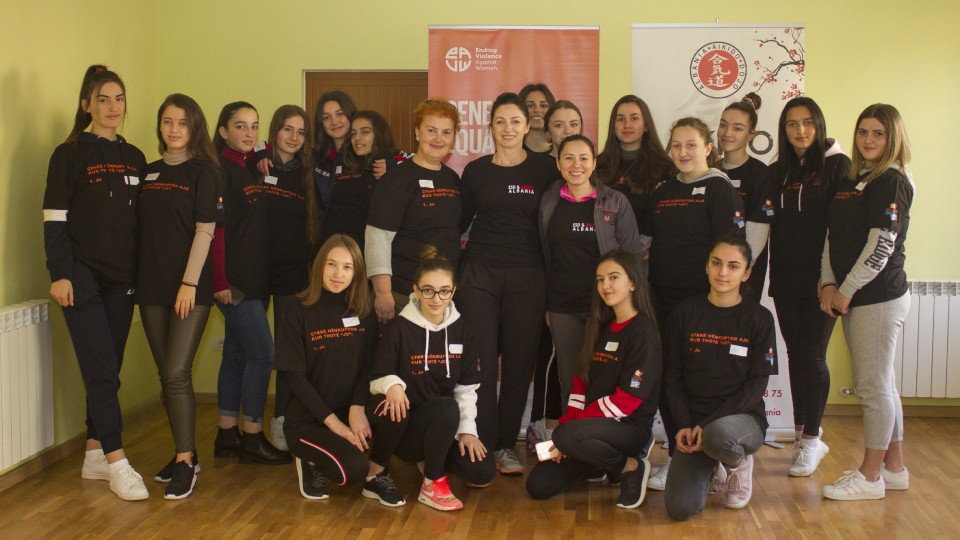
Valbona Reci, a high school teacher in Rreshen, a small town in northern Albania, has been very active and mobilized a club called “Let girls learn” that undertakes many initiatives during the Orange Campaign. Many girls from this club had the opportunity this year to follow the self-defense training.
![]() As teacher with 28 years of experience I have always appreciated the importance of non-formal education of youth, especially young girls, and this has become my mission”
As teacher with 28 years of experience I have always appreciated the importance of non-formal education of youth, especially young girls, and this has become my mission”
— Valbona Reci
All the participants, in the high schools of Tirana and Rreshen, including survivors of violence, were enthusiastic after completing the training. They felt being self-confident and fulfilled after learning a set of tools for a range of mental, verbal and physical responses. Most of them expressed their motivation and commitment to complete the full Empowerment Through Self Defense course with seven additional hours.
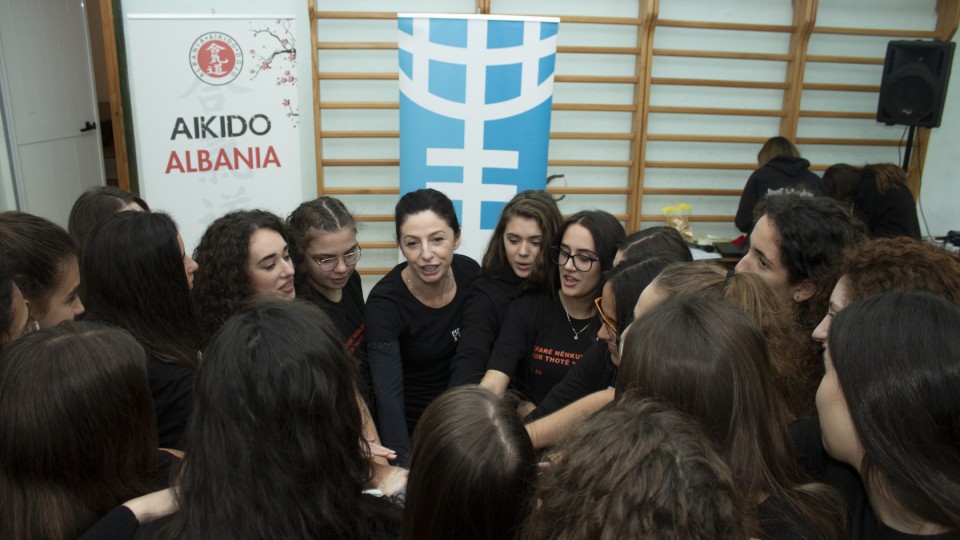
Three hours elapsed quickly and at the end of the courses, you could see faces filled with joy and optimism. One participant said: “I feel very well after the course, I didn’t expect it. I am glad that even in Albania we have this kind of opportunities that are very useful for us”.
The UN Joint Programme on Ending Violence Against Women in Albania, financed by the Government of Sweden supported the training that was age-targeted, empowering and effective.